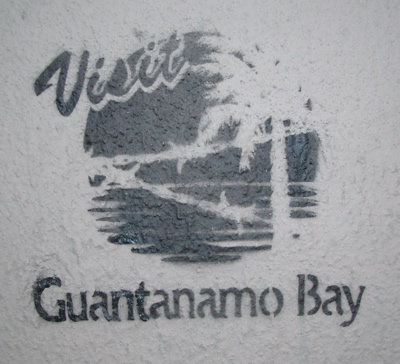Andrew Sullivan, of Andrew Sullivan fame, has a huge and absorbing piece in The New York Times Sunday Book Review on Abu Ghraib, Guantanamo, the Bush administration (along with the rest of us) and torture. He’s reviewing a couple of newly published books that document the administration’s policy on and practice of torture (“Torture and Truth,” by Mark Danner, and “The Abu Ghraib Investigations,” edited by Steven Strasser),
Sullivan’s take is thoughtful. He supported going to war in Iraq, still supports it, but has become a forceful critic of the Bush administration’s handling of it. His critique of the administration’s rationalization of torture and abusive tactics is pretty devastating. Although I’ll never agree with him on going to war in Iraq, I respect his willingness to look at his own, and other citizens’, complicity in what has taken place:
“Did those of us who fought so passionately for a ruthless war against terrorists give an unwitting green light to these abuses? Were we naïve in believing that characterizing complex conflicts from Afghanistan to Iraq as a single simple war against ”evil” might not filter down and lead to decisions that could dehumanize the enemy and lead to abuse? Did our conviction of our own rightness in this struggle make it hard for us to acknowledge when that good cause had become endangered? I fear the answer to each of these questions is yes. …
“I’m not saying that those who unwittingly made this torture possible are as guilty as those who inflicted it. I am saying that when the results are this horrifying, it’s worth a thorough reassessment of rhetoric and war methods. Perhaps the saddest evidence of our communal denial in this respect was the election campaign. The fact that American soldiers were guilty of torturing inmates to death barely came up. It went unmentioned in every one of the three presidential debates. John F. Kerry, the ”heroic” protester of Vietnam, ducked the issue out of what? Fear? Ignorance? Or a belief that the American public ultimately did not care, that the consequences of seeming to criticize the conduct of troops would be more of an electoral liability than holding a president accountable for enabling the torture of innocents? I fear it was the last of these. Worse, I fear he may have been right.”

